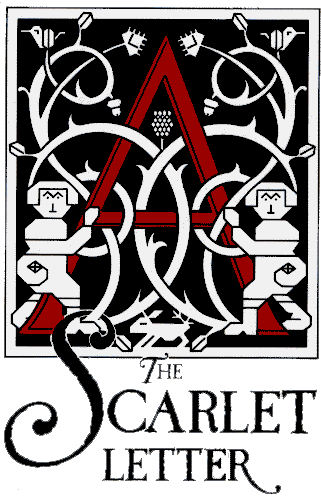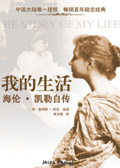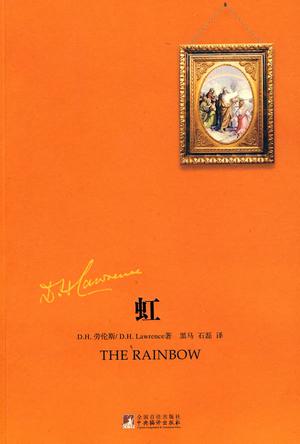the days of my life-第41章
按键盘上方向键 ← 或 → 可快速上下翻页,按键盘上的 Enter 键可回到本书目录页,按键盘上方向键 ↑ 可回到本页顶部!
————未阅读完?加入书签已便下次继续阅读!
Gibbs who had been my wife’s maid before marriage; three dogs; two parrots; and a “spider” carriage; which was built to my special order in Norwich; left England somewhere towards the end of 1880。 I think that we reached Natal before Christmas; and were greeted with the news of the Bronker’s Spruit massacre; for I can call it by no other name。 In short; we found that the Transvaal was in open rebellion。
It was indeed a pleasant situation。 Newcastle; whither we desired to proceed; lies very near the Transvaal border; and the question was; Did I dare to take my wife thither? For some weeks we remained in Maritzburg; staying part of the time with Sir Theophilus and Lady Shepstone; and the rest in an hotel。 Literally I was at my wits’ end to know what to do。 To advance seemed too risky; to remain where we were was both wearisome and; with our servants; ruinously expensive。
At length my wife; who; I think; take her altogether; is the most courageous woman I ever met; announced that she would have no more of it: her house was at Newcastle two hundred miles away; and; Boers or no Boers; thither she would go。 There were rumours that Sir George Colley; who was then the Governor and mander…inChief of Natal; intended to attack the passes of the Drakensberg with the few troops at his disposal。 Nobody believed it; since the thing was so obviously a madness。 But I was not so sure。 I went to Colonel (afterwards Sir Charles) Mitchell; the Colonial Secretary; and asked him in confidence if he knew anything。 He replied — Nothing; but that I might be quite certain that so distinguished a soldier would never act foolishly。
So I bought two good horses — which afterwards died of the sickness — harnessed them to the “spider;” and we started。
I think it was on the night before Colley left Maritzburg to take personal mand of the troops at Newcastle that my wife and I dined at Government House。 If so; this historical dinner took place on January 9; 1881。 I believe that there were thirteen of us at table; though on this point I am not absolutely clear; of whom three were ladies — Lady Colley; another lady whose name I forget; and my wife。 The other guests were officers and the members of Colley’s staff。 The only name that I can remember is that of young Elwes; who within a week or two was to die charging the Boer schanzes and shouting “Floreat Etona!” I sat next to him at table。
My wife reminds me of an absurd little incident that happened at this dinner。 Elwes; I think; was A。D。C。 to Colley; and one of his duties — it used to be mine when I was on the Governor’s staff in the same house — was to write the menus in French。 One of the items of fare recorded by him was pates de mince。 In a silence such as happens at dinner…parties; Lady Colley was heard saying from the end of the table:
“Mr。 Elwes; what are pates de mince? I never heard of a dish called pates de mince!” whereon everyone turned and looked at Elwes。
“Pates de mince; Lady Colley;” he stammered presently; his youthful face covered with blushes; “is the French for mince…pies。”
Poor Elwes! He did not hear the last of his pates de mince during that meal。 Thus do farce and tragedy often walk hand in hand。
In a few months’ time Lady Colley; the other lady; my wife and I were the sole survivors of that dinner…party。 The other lady died shortly afterwards。 About the year 1888 my wife and I were guests at a dinner given by the late Anthony Froude。 Lady Colley; as she was then; was another of the guests。 Thus we three survivors of that fatal Government House dinner met again。 When Lady Colley recognised us she burst into tears; and my wife was obliged to stand over her to screen her grief from observation。
Here are some extracts from a letter written by my wife to my father from the little town of Estcourt; and dated January 19; 1881 — nearly thirty…one years ago。
We have at last summoned up courage to start up…country in spite of the Boers; the real fact being that we were getting dreadfully tired of doing nothing down in Maritzburg; which was besides most fearfully hot。 We got to our first stage; Howick; last Friday; which luckily for us was a very pretty place with a fortable hotel。 I say luckily; because we were detained there by the rain till Monday。 We then started at about 9:30 A。M。 for Mooi River (a distance of thirty miles); which we did not reach until about 8 o’clock in the evening。 The roads were in a positively fearful state: we could only go very carefully at a foot’s pace the whole way; and even then we got into some very nasty places。 I walked a good part of the way; in fact we all did; as it was quite as hard work hanging on driving as walking。 Yesterday we came on here; which was not half such a tiring day; as the roads were paratively very good; and we are told that they will be so now for the rest of the way; which is a fort。 If we are not detained by rain or other mishaps we expect to get to Newcastle next Saturday。 I quite forgot to tell you that the unhappy Gibbs came to sad grief on the way from Maritzburg to Howick; and all on account of her devotion to Bob。 She was nursing the said spoilt animal on her knee when suddenly the carriage went into a hole; gave a lurch and nearly sent Bob flying。 In her efforts to save him out fell Gibbs right between the wheels; but marvellous to relate she was not a bit hurt; only bruised her arm a little and got a good shaking。 。 。 。 At almost every stage we meet fugitives from the Transvaal; but they all seem to look upon Newcastle as safe。 。 。 。 With much love from us both to you all;
Your affectionate daughter…inlaw;
M。 L。 Haggard。
Truly this was an awful journey; especially as my wife was in a state in which great exertion was undesirable。 The roads; as she says; were terrible; being cut up by the passage of guns and troops。 Indeed; there were no roads — simply; in that wet season; breadths of mud…holes sometimes a hundred yards wide; of which holes you might take your choice。 It was into one of these that poor Gibbs fell with the beloved terrier; Bob。 Never shall I forget the splash she caused。 The spectacle of an elderly British lady’s…maid in that hole still clasping Bob to her bosom was almost weird。 The hind wheels of the “spider” went over her; grinding her deeper into the mire。
“Good God!” I said to Stephen; “she is done for。”
My further remarks were interrupted by a series of piercing yells。
“Lord bless you; sir;” answered Stephen; “if she can screech like that there ain’t much the matter。”
Nor was there; except mud and Gibbs’ voluble views upon South African roads。
A day or two after this we galloped in front of a fearful thunderstorm; of which the flashes kept striking behind us; and at last reached shelter just in time。 On another day we ploughed through sodden peat flats; in which our wheels sank to the axles; to the edge of a river — I forget which river。 On the farther bank was the inn。 The night was ing on and the river was in full flood。 What could we do? To get back across those flats was impossible; to sleep in the rain in the open carriage was impossible; to attempt to cross the flooded river was very dangerous。 My wife; as usual; made up her mind at once。 “Let’s try it;” she said。
I felt bound to give Gibbs her choice。
“Don’t you go a…asking of her; sir;” said Stephen; “or we shan’t never do nauthing。 If we’ve got to drown; she may as well drown too。” Stephen; I may observe; lacked affection for Gibbs。
So we “tried it;” two brave and brawny Zulus wading into the water with us; and hanging on to the sides of the “spider” in order to prevent it from overturning。 A transport rider on the bank; who had warned us against the attempt; shouted valedictory messages: “When you are all drowned; don’t blame me。 Remember that I told you so!”
I answered something appropriate to the occasion and my feelings; and in we went。
The stream was ing down like a mill…race and rising every minute。 Soon the horses were off their legs; but they were plucky beasts and struck out for the farther shore of the drift。 The water ran through the bottom of the carriage; which began to float; but the brave Kaffirs hung on; although they were up to their arm…pits and could scarcely





